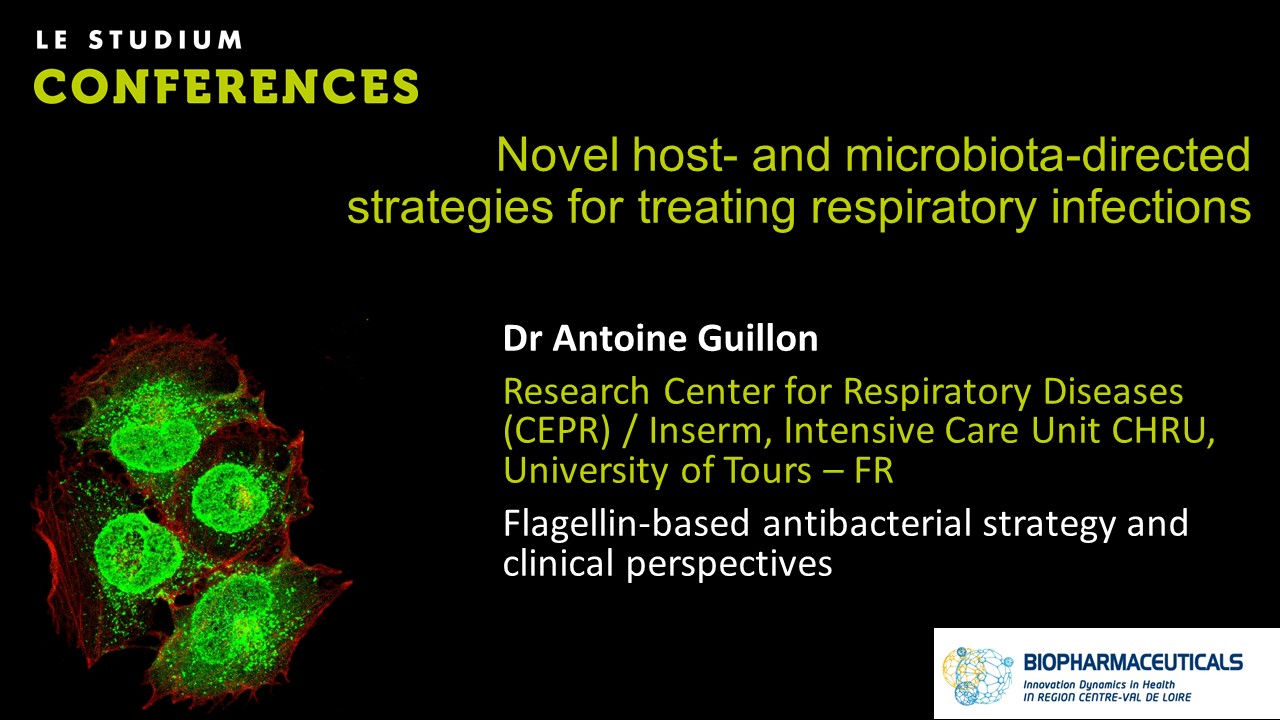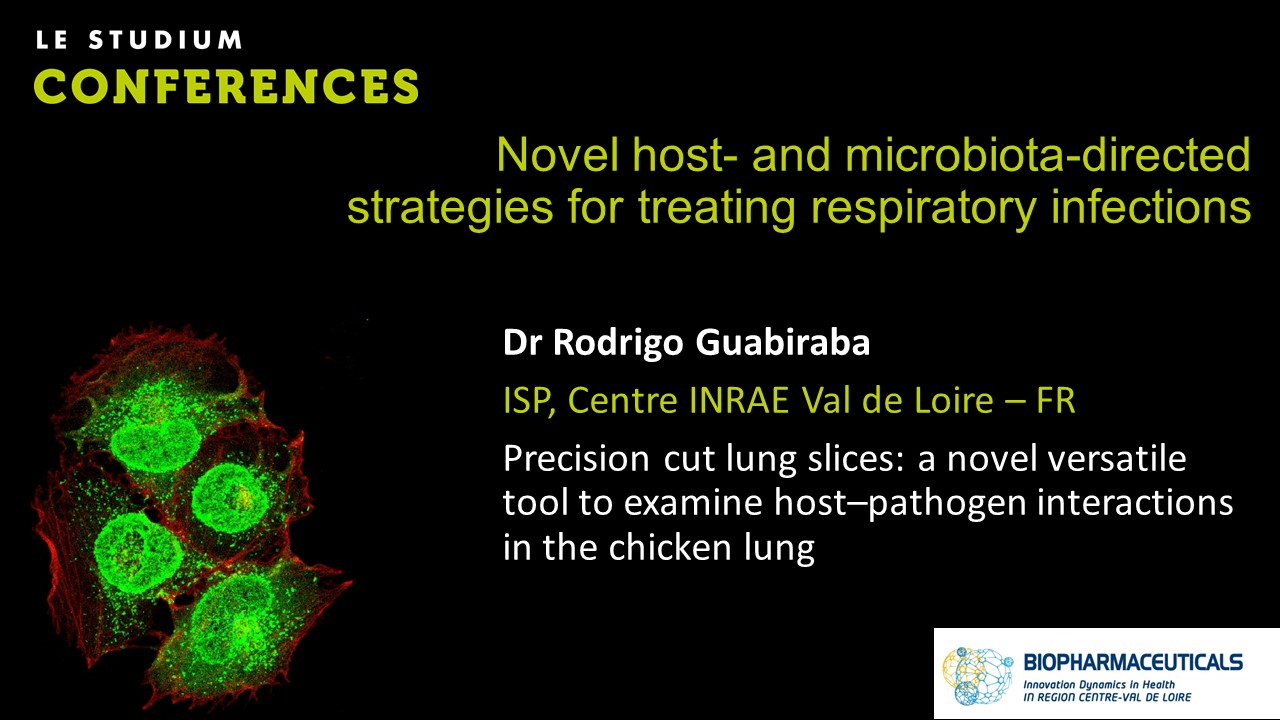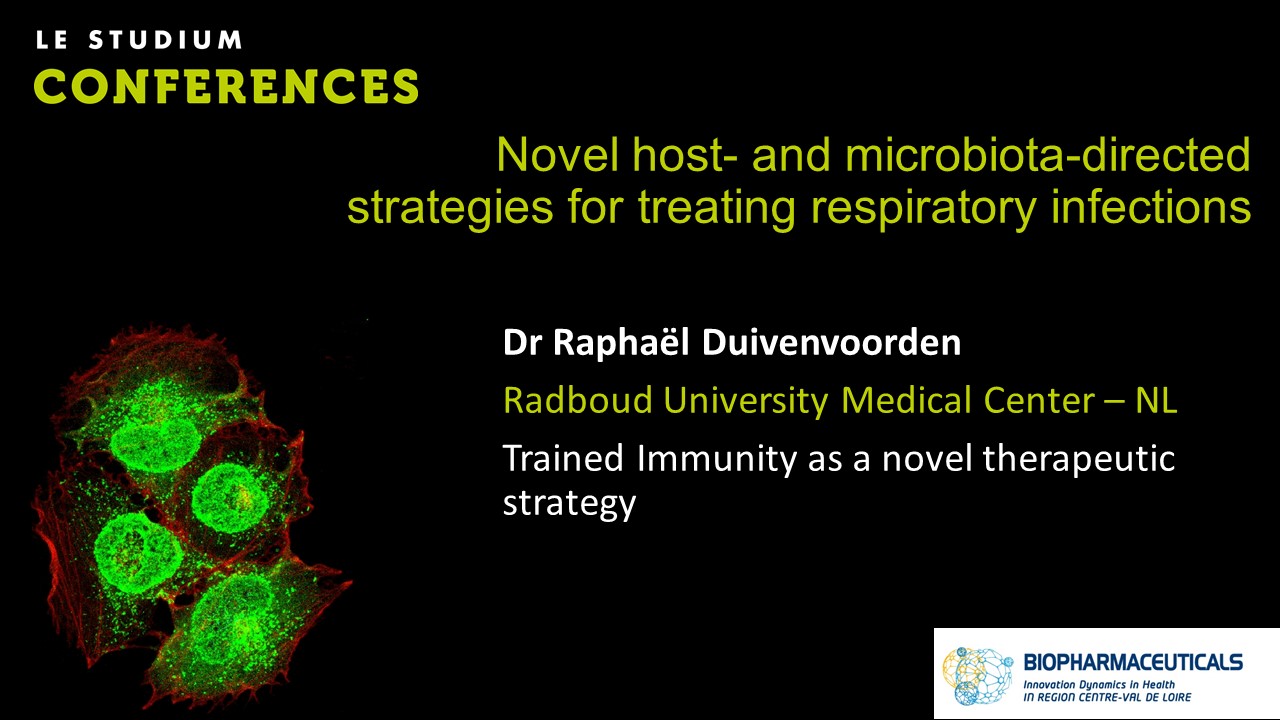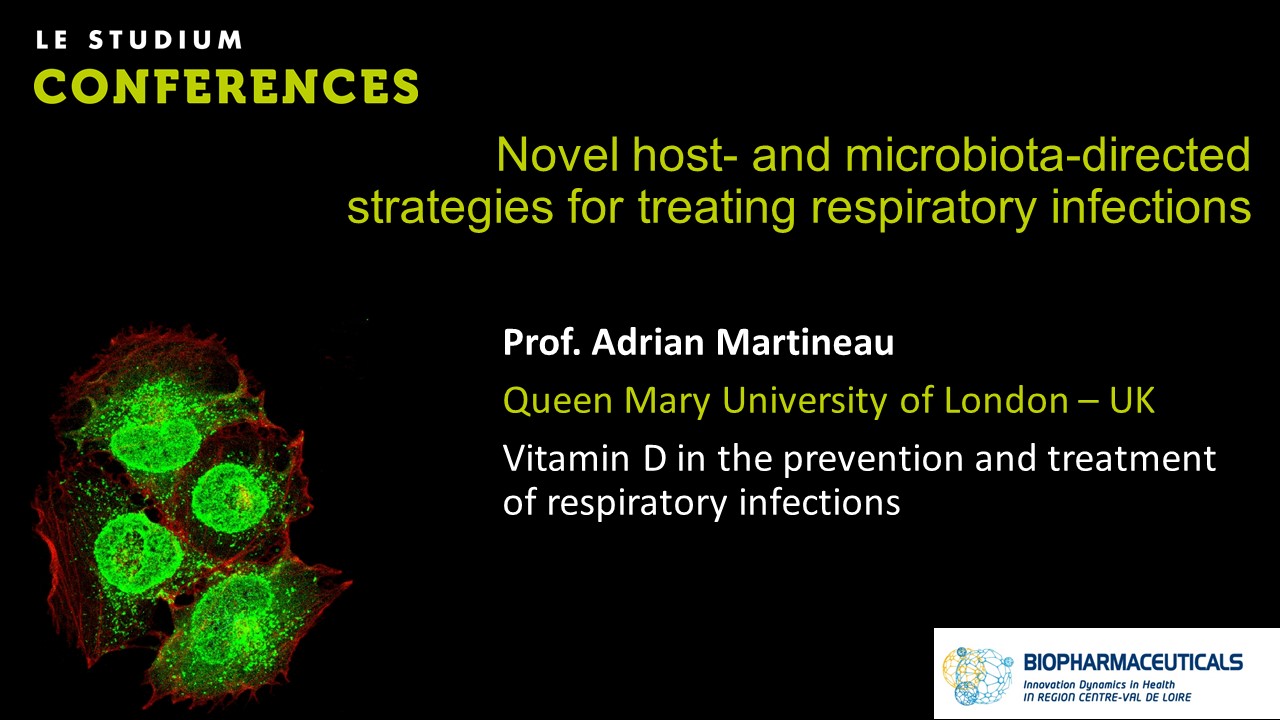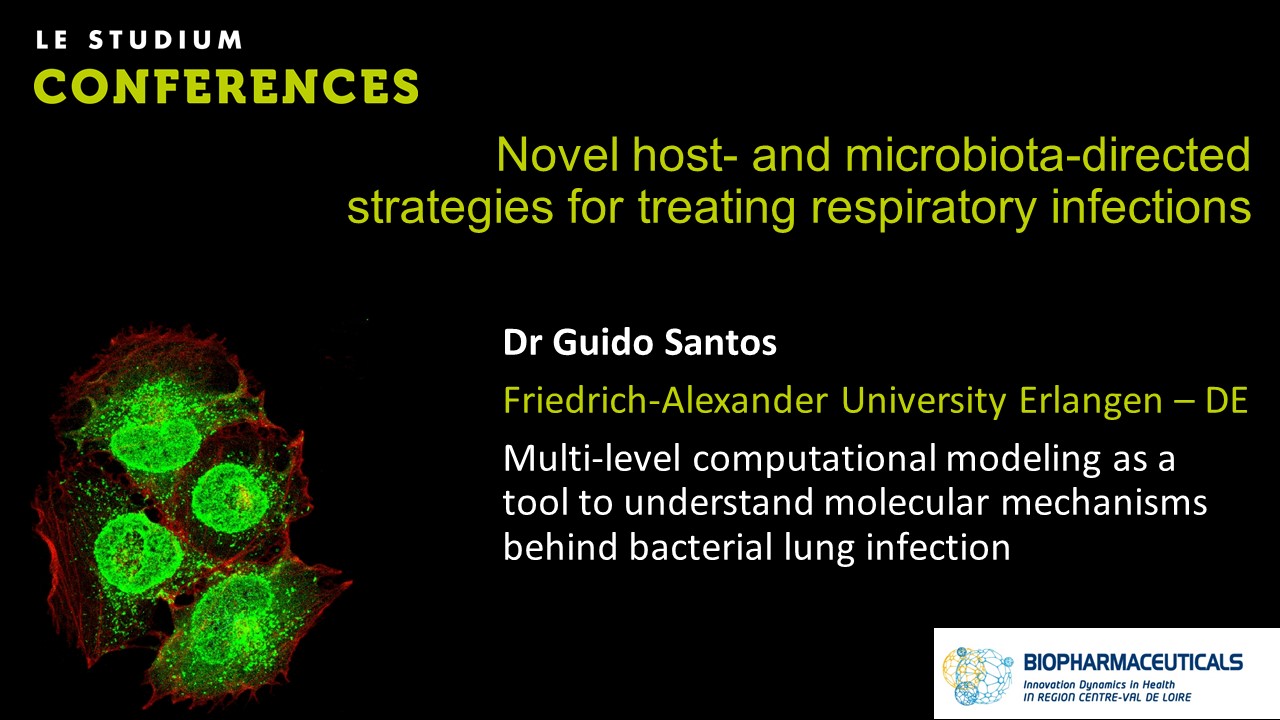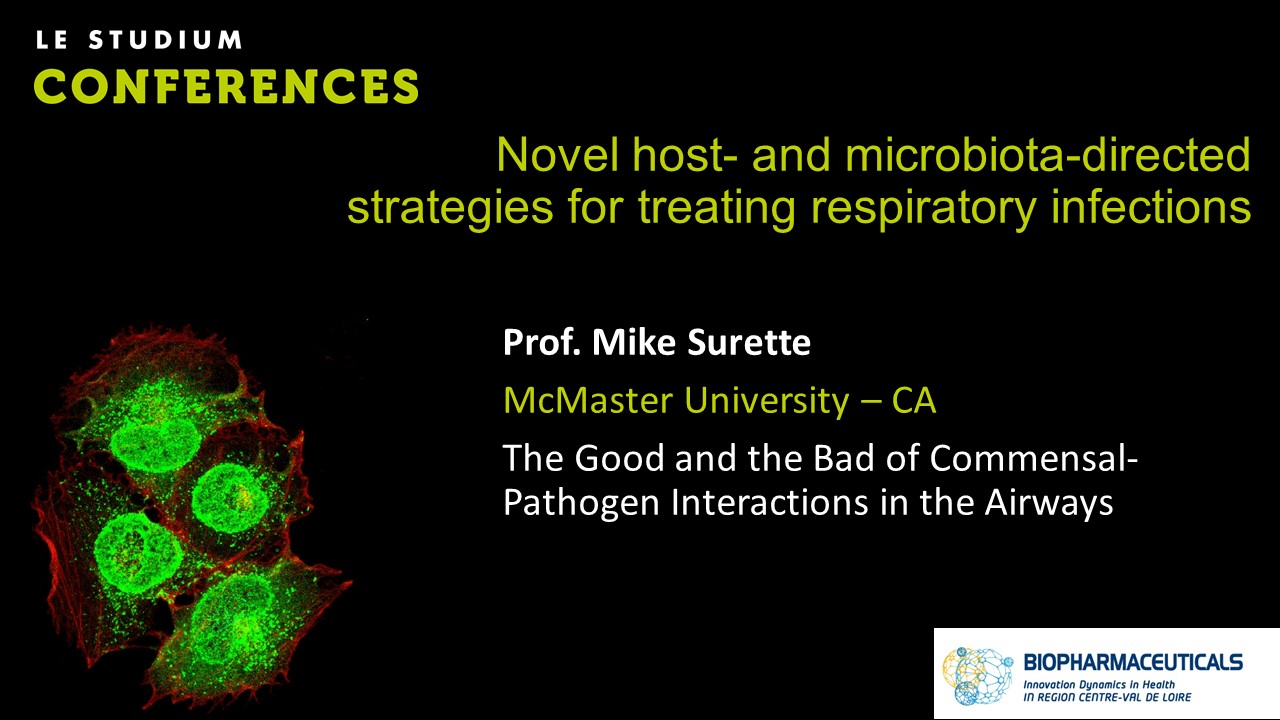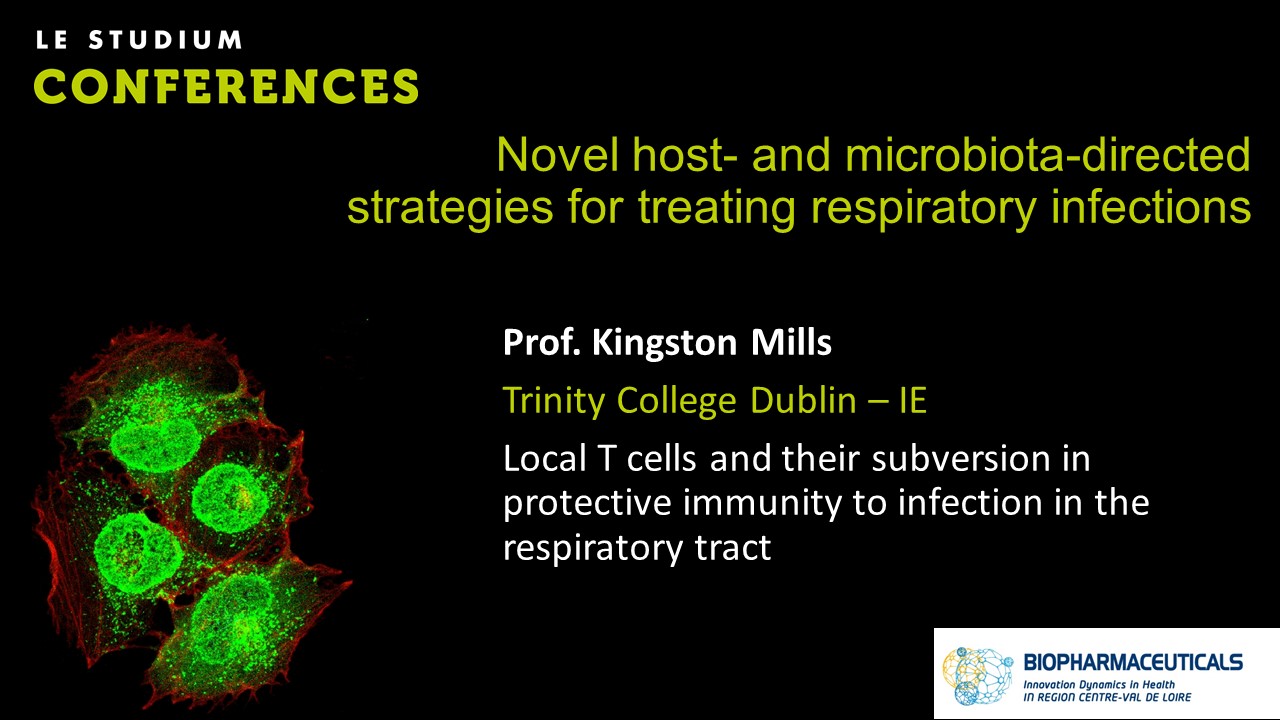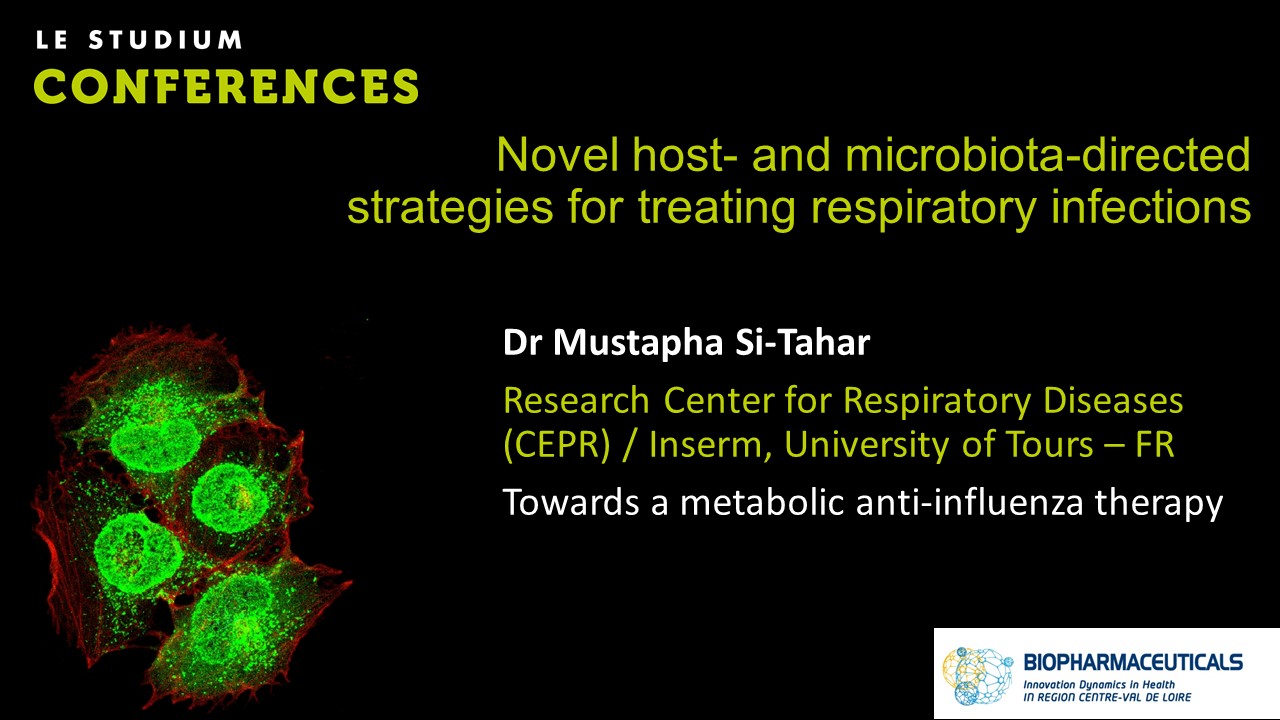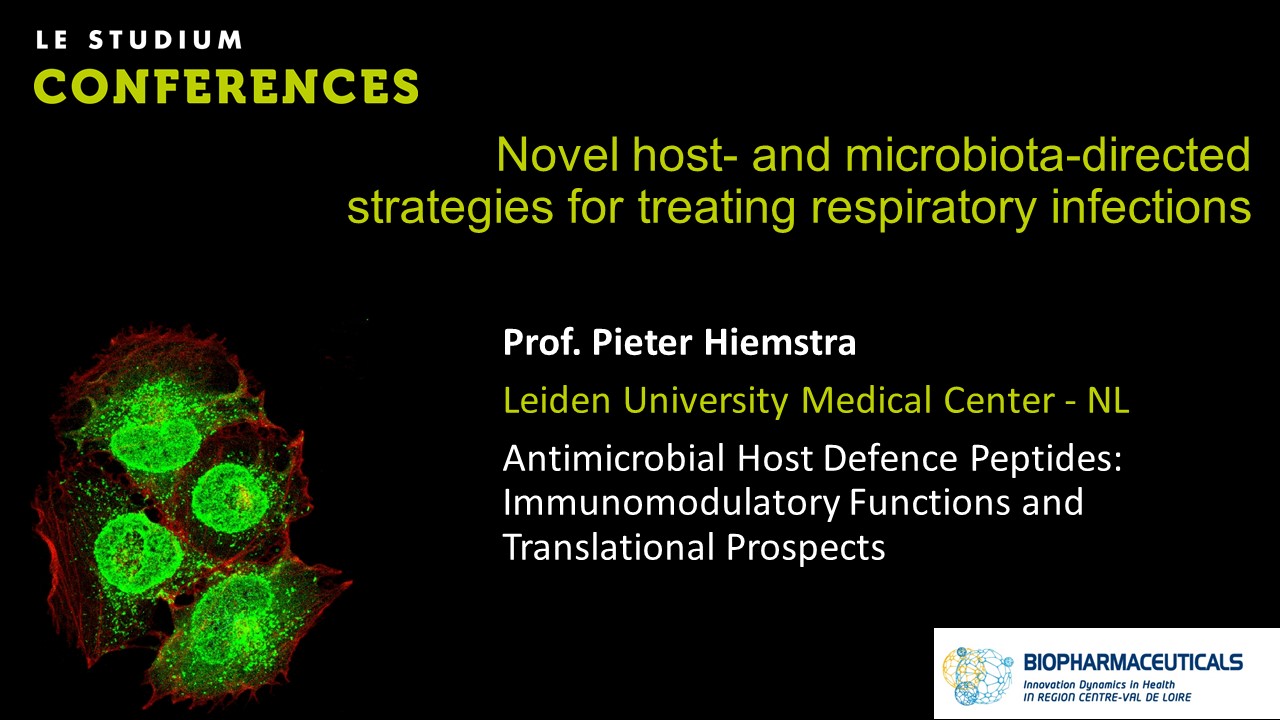Notice
Dr Aurélie Crabbé - Host metabolites modulate bacterial susceptibility to antibiotics
- document 1 document 2 document 3
- niveau 1 niveau 2 niveau 3
Descriptif
Antibiotic susceptibility of bacterialpathogens is typically evaluated using in vitro assays that do not consider thecomplex host microenvironment. This may help explaining a significantdiscrepancy between antibiotic efficacy in vitro and in vivo for chronic lunginfections, with some antibiotics being effective in vitro but not in vivo orvice versa. We previously demonstrated that lung epithelial cells enhance theactivity of aminoglycoside antibiotics against the opportunistic pathogen Pseudomonas aeruginosa, yet themechanism behind was unknown. I will present mechanistic insights on how lungepithelial cells stimulate aminoglycoside activity. To this end, an in vivo-like 3-D lung epithelial cellmodel was used. We report that conditioned medium of 3-D lung cells, containingsecreted but not cellular components, potentiated the bactericidal activity ofaminoglycosides against P. aeruginosa,including resistant clinical isolates, and several other pathogens. We foundthat 3-D lung cells secreted endogenous metabolites that modulateaminoglycoside activity, and provide evidence on the mode of action. Ourfindings reveal a cross-talk between host and bacterial metabolic pathways,that influence downstream activity of antibiotics. Understanding the underlyingbasis of the discrepancy between the activity of antibiotics in vitro and invivo may lead to improved diagnostic approaches and pave the way towards novelmeans to stimulate antibiotic activity.
Dans la même collection
-
Dr Antoine Guillon - Flagellin-based antibacterial strategy and clinical perspectives
Bacterial pneumonia is a leading cause of morbidity and mortality worldwide. Antibiotics constitute the standard of care but are faced with the emergence of antimicrobial resistance and the curative
-
Dr Rodrigo Guabiraba - Precision cut lung slices: a novel versatile tool to examine host–pathogen i…
The avian respiratory tract is a common entry route for many pathogens and an important delivery route for vaccination in the poultry industry. Immune responses in the avian lung have mostly been
-
Dr Raphaël Duivenvoorden - Trained Immunity as a novel therapeutic strategy
Innate immune cells form a vital first line of defense against pathogens, and their activation upon recognition of pathogens is rapid and non-specific. For a long time it has been assumed that
-
Prof. Adrian Martineau - Vitamin D in the prevention and treatment of respiratory infections
Vitamin D is best known for its effects on calcium homeostasis, but a growing body of evidence shows that it also has extensive immunomodulatory actions. In this talk I will describe the effects of
-
Dr Guido Santos - Multi-level computational modeling as a tool to understand molecular mechanisms b…
Pneumonia is one of the most prevalent infectious diseases worldwide, whose main cause is the pathogen Streptococcus pneumoniae. This is an opportunistic disease affecting the most to sensitive
-
Prof. Mike Surette - The Good and the Bad of Commensal-Pathogen Interactions in the Airways
The airways are colonized by a complex microbiota that varies in composition and density spatially throughout the respiratory tract, as well as temporally through the life-course. While the lower
-
Prof. Kingston Mills - Local T cells and their subversion in protective immunity to infection in th…
Respiratory infection with Bordetella pertussis causes whooping cough. The infection is controlled by innate immune responses, but complete bacterial clearance from the respiratory tract and
-
Dr Mustapha Si-Tahar - Towards a metabolic anti-influenza therapy
Influenza A virus (IAV) is the etiological agent of a contagious acute respiratory disease, which is associated with high morbidity and mortality. This virus also causes a considerable socio
-
Prof. Pieter Hiemstra - Antimicrobial Host Defence Peptides: Immunomodulatory Functions and Transla…
Antimicrobial host defence peptides (AMPs) are effector molecules of the immune system. AMPs are considered as possible alternatives to conventional antibiotics for the treatment of respiratory

